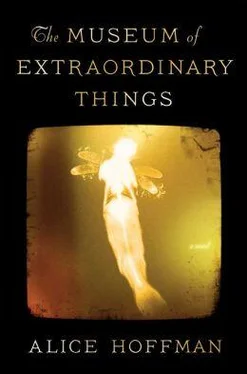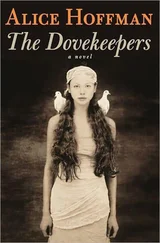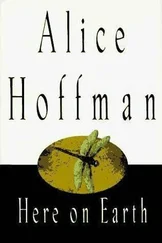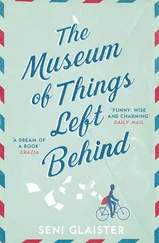Eddie went fishing on Saturdays, the day he would have been at prayer had he lived the life that had been intended for him. It was easy enough to avoid civilization; he simply skirted the river. Central Park, once a boggy area good only for goats and piggeries, and later populated by squatters, along with a town called Seneca Village, home to African American and Irish immigrants and destroyed thirty years earlier, had been remade into an opulent playground for the residents of the luxurious town houses of the East Side. Those wealthy New Yorkers preferred their experiences with nature to consist of clipped green meadows and waterfalls that were turned on and off with spigots. The Citizens Union had filed complaints with the parks department to stop Central Park from being popularized, which, if it was allowed to be used for sports and ball games, would ruin the greenery by giving it over to the immigrant masses. Though Riverside Park ran alongside the Hudson for several blocks, the land along the uppermost West Side was still wild, though for how long, no one dared to guess.
There was the fresh green scent of early spring. Mourning cloaks and cabbage white butterflies filled the air. Eddie had occasionally seen the prints of fisher-cats and fox tracked through the mud. It was not far from here that he had recently imagined someone had been watching him. His dog was a gleeful hunter of moles and mice, but, on this particular evening, there seemed bigger game at stake. The hair on Mitts’s back had gone up, and he’d taken off like a shot. The pit bull may have spied a deer in the undergrowth, or perhaps it was the old hermit Jacob Van der Beck, a Dutchman who lived in a rough-hewn cabin. Here was an individual so bitter toward his fellow men, so sure that the building boom in Manhattan would overtake his slice of the world, it was said he had a wolf tied up on his porch to keep interlopers at bay. His family had owned a large tract of land from the time of the Dutch settlers, with ties to the founding families, such as the Dyckmans. He still referred to the Hudson as the North River, as the original settlers had.
Eddie had once persuaded the old man to sit for a portrait in exchange for a bottle of rye. Beck had been a grumpy and withholding model; he’d crouched upon a moss-covered log and hadn’t batted an eye, vanishing back into the woods as soon as Eddie took his photograph.
On the evening Mitts ran away, galumphing through the woods, dead set on chasing after some sort of prey, Eddie had eventually found the dog in a clearing. There’d been no sign of Beck and no deer tracks, yet there was a presence. The ground was damp, as if the river had washed up into the meadow grass, leaving a soft path beaten down in the patches of trillium and bloodroot. There was no one in sight, but all the same, when Eddie returned to his campsite, he couldn’t shake the notion that he’d been followed.
Now, here it was, the last Saturday in March, and Eddie settled down with his rod. He’d left his studio in the dark, and it was hardly daybreak when he began to fish. On both sides of the Hudson the sky was struck with a hazy pink glow. He’d brought along night crawlers and crusts of bread in an old tin pail. Eddie avoided the Harlem River—it was overcrowded and overfished, even more so than the Hudson, littered with oystering boats. Several bridges had recently been built across the waters, disturbing the marsh birds. He knew it wouldn’t be long before the countryside disappeared, as it had in Chelsea, where there was pavement everywhere.
Through the new leaves of the locust trees, Eddie spied Beck fishing farther down along the bank. An encounter with the old man appeared unavoidable, for the hermit gazed over and nodded. Eddie returned the greeting, considering how to best keep his distance. Beck was known to chase off intruders with a rifle, and there were those who said he vowed to kill any man who hunted the wildlife that was rapidly becoming rare, coyotes and fox and the huge, cantankerous wild turkeys. Past the area of Washington Heights was Hudson Heights, the highest altitude in Manhattan, at 265 feet above sea level. There was the pastoral village of Inwood, and although the subway ran this far, this section of north Manhattan was still dotted with small farms, including a house once owned by the Audubon family. Eddie joined the hermit in his agitation over the constant building in Manhattan. Apartment buildings were rising everywhere. City officials had begun to shore up the ravines that led to Spuyten Duyvil Creek, an offshoot of the Harlem River, where peregrine falcons nested in the trees. The very banks of the Hudson were being fortified against the tides with rock and cement toted by gangs of city workers. The shore of the river had become cluttered with pockets of houseboats in the calm inlets, and their inhabitants washed their clothes and pots and pans with lye soap in the shallows, leaving a yellow scrim of grease at the shoreline.
Eddie looped a rope around Mitts’s neck to make certain the pit bull wouldn’t charge off and annoy the Dutchman. A fisherman, especially one such as Beck who despised company, was meant to be alone at his task. The river was choppy, because of the rising wind, so Eddie made his way to a small, clear stream that filtered into the Hudson. He hunkered down, his collar raised. Soon enough he found success, a trout that fought valiantly, until it had exhausted itself. When reeled in, the trout was such a lovely specimen Eddie hadn’t the heart to let it gasp its last on the grass. He sloshed some water into his tin pail, then slid the fish inside. The trout, frenzied to find itself captured, leapt up, banging itself against the side of the pail before at last settling to the bottom, spent, a slash of living light.
Eddie set his camera on its wooden trilegged stand. After all the hackwork he did for the papers, he wondered if he had lost the ability to take an honest photograph. If this was so, he alone was to blame. He was reminded of the Yiddish oath union workers took when setting out on strike lines. If I turn traitor to the cause I now pledge, may this hand wither from this arm I now raise . Perhaps he had become a traitor to his art and to the man Moses Levy thought he might become. The photograph of the fish would be dependent upon skill, and Eddie worried over his talent. Without shadows the image would appear to be nothing more than a bucket of murky water. Without compassion, nothing but a fish, trapped and defeated.
The hermit, who wrapped his own day’s catch in newspaper, had begun to climb up the bank toward the little stream. Eddie muttered to himself, wishing to be left alone. But Beck was headed straight for him, ferns flattening under his heavy, laced boots. Eddie regretted having given the Dutchman a bottle of rye, for such kindness led to intimacy and confidences, neither of which he wanted.
The hermit stood nearby to watch as the fish was photographed. When Eddie had finished, Beck peered into the bucket. His beard was long, unkempt, his expression concerned.
“You should let that fellow go. For his own good and yours.” The hermit was wise to wear a heavy coat. In town, the day was warm, but here beside the river the pale rays of sun did little to warm the chill that drifted off the water.
“Why’s that?” Eddie did not raise his eyes, so as to keep his distance. He continued to busy himself with packing up his camera. He’d dealt with madmen before. Best not to meet their glance or learn too much about their wretched histories.
“You took his photograph,” Beck said solemnly. “Now you’re responsible for his soul. You should give him back to the river. Otherwise he’ll take you somewhere you may not want to go.”
Читать дальше













